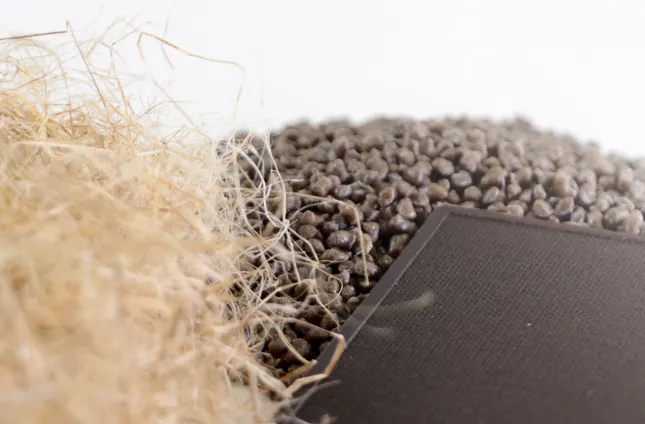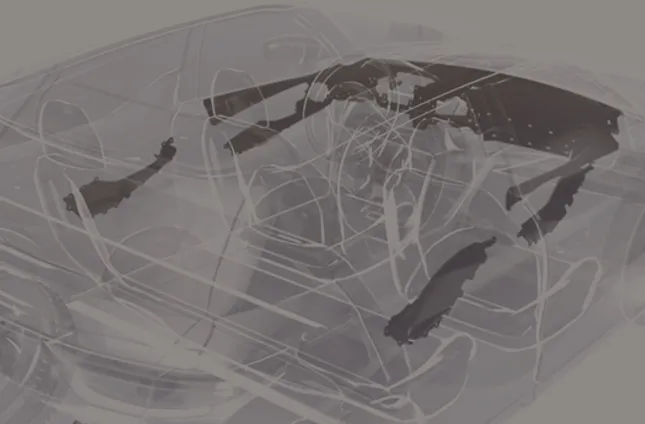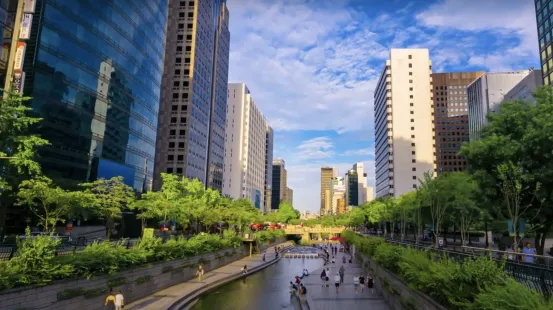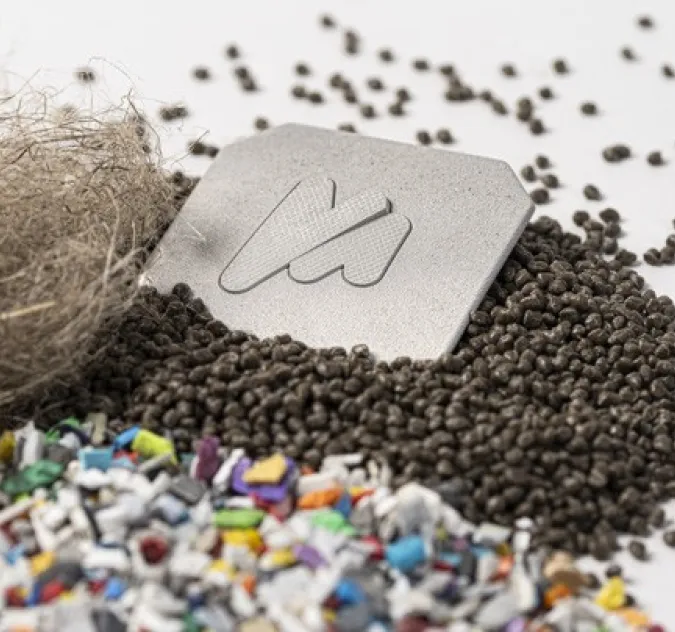100% recyclable biocomposite materials
Product features
Interiors for the planet

Choosing a more sustainable car industry
Our product NAFILean-R combines the best of both worlds : reducing CO₂ emissions and improved mechanical performance, and the integration of recycled materials for a circular economy and low carbon footprint.

Lighter car weight
Because NAFILean range is made from biofiber, the total weight of the car is reduced so are the emissions during the use of the vehicle.
Towards a more circular economy
The NAFILean platform contributes to the evolution of an industry through sustainability, innovation and social equality.
Full range of biocomposite materials
NAFILean integrates 20% natural fibers (hemp) with polypropylene to create a material that is 100% recyclable material. It reduces the weight and CO₂ footprint of car interiors while maintaining the mechanical characteristics and technical performance.
Recyclable local fiber
The recyclable and biomass materials used to create NAFILean are sourced through an ecosystem of partnerships, providing local and consistent access to feedstock.
A better traceability
A QR code Digital passport ensures traceability of materials sources and calidates NAFILean’s recyclability and sustainable authenticity. The platform and partnership guarantee a secure supply of local agriculture raw materials.
Easily suitable
Mechanicals properties of the variants produce quality and reproducibility and are suitable for very demanding automotive application.
Video
Understand what NAFILean is

Key figures
15
millions vehicles produced with this injection
20 %
natural fibers
35 000
tons of CO₂ emissions reduced
87 %
CO₂ savings
Hemp, a material for the future
Using hemp as one of the raw materials in our range has a direct impact on the environment.
As it grows, hemp captures CO₂ from the air and transforms it into organic matter using the sun's energy via photosynthesis. According to the European Commission, a hectare of hemp would absorb around 9 to 15 tonnes of CO₂, a quantity similar to that sequestered by a young forest - but in just a few months (hemp grows fast), as opposed to several years.
As it grows, hemp captures CO₂ from the air and transforms it into organic matter using the sun's energy via photosynthesis. According to the European Commission, a hectare of hemp would absorb around 9 to 15 tonnes of CO₂, a quantity similar to that sequestered by a young forest - but in just a few months (hemp grows fast), as opposed to several years.
Rethinking conception, fabrication and use of our products is a key step towards carbon neutrality.

Jean-Paul MICHEL
Executive Vice President of FORVIA Interiors
“The sustainable transformation of our industry is not just about reducing negative impacts on the planet, but also about creating a sustainable and profitable ecosystem. With MATERI’ACT and our NAFILean platform, we aim to develop innovative materials and solutions while making a positive contribution to industry, society and the environment.”



